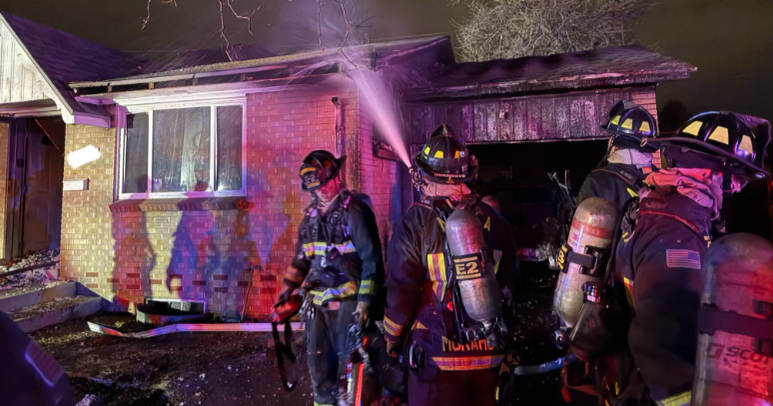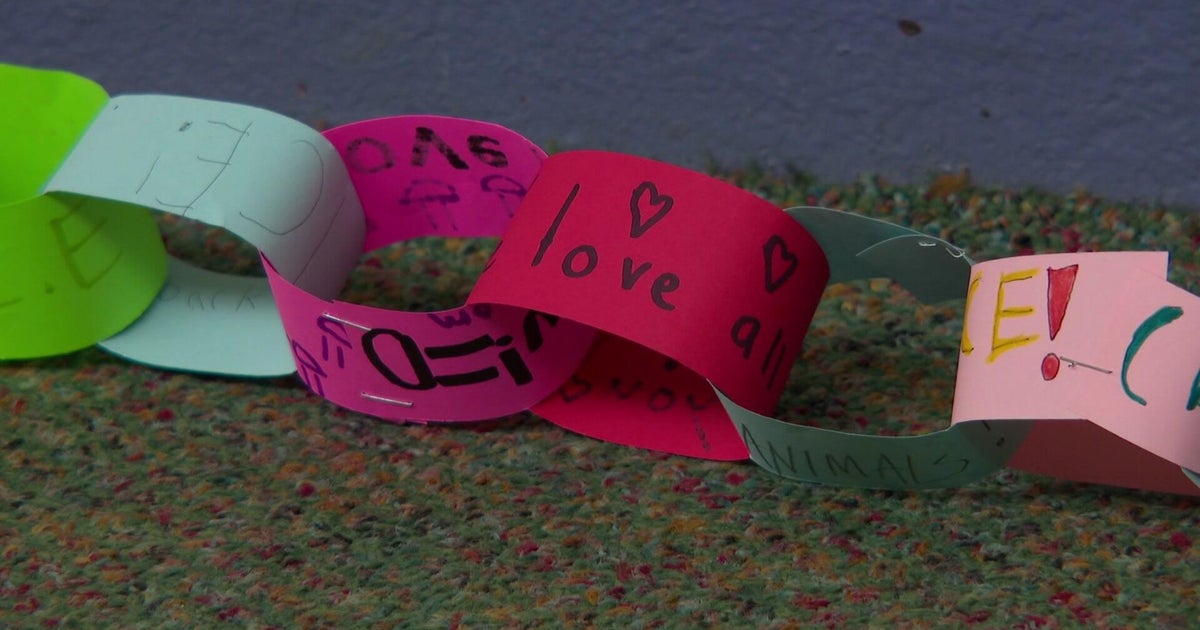How Dirty Is It Inside Your House?
MIAMI (CBSMiami) — The Moreno family of Plantation takes tremendous pride in its home.
"This is about as clean as it gets," said Ben Moreno to CBS4's Brian Andrews during a recent tour.
There's a lot going on at the house.
The teenage son who plays in a garage band uses the living room for rehearsal.
The kindergarten-aged daughter, Leigh Ann, loves to play with her toys in almost every room of the house.
"How important is a clean house to you," asked CBS4's Brian Andrews.
"Clean as in germ free is very important because I don't want my kids sick," responded Helena Moreno.
CBS4 News took swab samples from all over the house and sent them off to the Microbiology Lab at Nova Southeastern University.
There, Dr. Julie Torruellas-Garcia and her students ran tests to determine what type of bacteria could be found living in the Moreno's home.
"They'll be pretty surprised," said Dr. Torruellas-Garcia.
Microscopic traces of trouble turned up on just about every sample that was tested.
"Some of the plates even grew fungus," said Dr. Torruellas-Garcia.
The testing found the presence of E-Coli bacteria in the microwave.
"We use it to cook our food, but, we also use it to defrost mea," said Dr. Torruellas-Garcia. "Raw meats carry bacteria like e-coli and salmonella," she added. "Sometimes, the food splatters around the microwave and we don't always clean it."
The refrigerator handle was also found to have several different types of bacteria. "There were so many, they just all grew together in the petri dish," said Dr. Torruellas-Garcia.
In the automatic ice maker, evidence of Staphylococcus aureus was found. This is the same type of bacteria that can lead to skin infections. "This is the one I was really worried about because never in my life have I cleaned inside there," said Helena.
"You always want to be concerned when there's the possibility you could be ingesting something," said the Doctor.
The kitchen coffee maker tested positive for bacteria and fungus. "Gross," said Helena. Then, there was the kitchen sponge. "This typically has the most bacteria on it in your house," said Dr. Torruellas-Garica. "Instead of throwing it out, you can put a damp sponge in the microwave for about a minute and a half and that will kill all the bacteria," she added.
Your dishwasher can also be loaded with bacteria. After all, it's cleaning plates with food particles on them. "Food particles are nutrients for bacteria," said Dr. Torruellas-Garcia. "It also has moisture and water which is what bacteria needs to grow."
Dr. Torruellas-Garcia adds it's a good idea to prop your dishwasher door open when it's not in use to allow the inside to dry. Same goes for the household washing machine.
The Moreno's washing machine tested positive for Staphylococcus aureus. "A lot of it has to do with the fact that you have bacteria on your clothes when you put them in the washing machine. The detergent doesn't necessarily kill all the bacteria," said the Doctor.
Our testing also found potentially harmful bacteria living on the family's TV remote control.
Not surprising considering how many members of the family handle it on a daily basis, and because Helena Moreno was nursing a cold at the time CBS4 tested it. "If someone was sick and then depositing the bacteria that's actually causing the infection, that's when you want to be careful," said Dr. Torrulellas-Garcia.
Testing also found bacteria and fungus growing on toys in the children's toy chest.
Dr. Torriuellas-Garica says it's a good idea to wash stuffed animals in the washing machine and to wipe down plastic tots with a 10% bleach solution.
It's also surprising what types of bacteria you track in your house. Testing found bacteria on the bottoms of the Moreno's teenage son's tennis shoes.
"Do you know what you are tracking in the house," asked CBS4's Brian Andrews. "E-Coli," asked Dylan. Exactly. "You're stepping in everything all day so you would expect to find a lot of bacteria on a shoe," said Dr. Torruellas-Garcia. "That's it," said Helena Moreno. "Everyone needs to start taking their shoes off at the front door."
Helena was not happy with the amount and types of bacteria CBS4 found inside their home. "I'm not happy, but it's good to know that it's there so we can clean it," she said.
If cleaning with chemicals isn't your thing, you may want to try electrostatic sanitization. "It's pulling all the particles out of the air," says ByoPlanet President Rick O'Shea. "You're killing all of the bacteria."
Workers will come into the home wearing contraptions that look like something out of the movie "Ghostbusters" which uses microns to attack the microscopic muck that may be lurking in your home. "Our premise is we don't miss," said O'Shea with a smile.
ByoPlanet, based in Sunrise, says its service leaves surfaces free of the majority of bacteria for up to 90 days once treated.
It's the same technology cruise ships use to clean hallways and staterooms following an outbreak of Norovirus. "What I learned from all this is that there are hidden germs all over the place," said Helena Moreno. "You just have to be mindful and take care of it!"
RELATED CONTENT:







